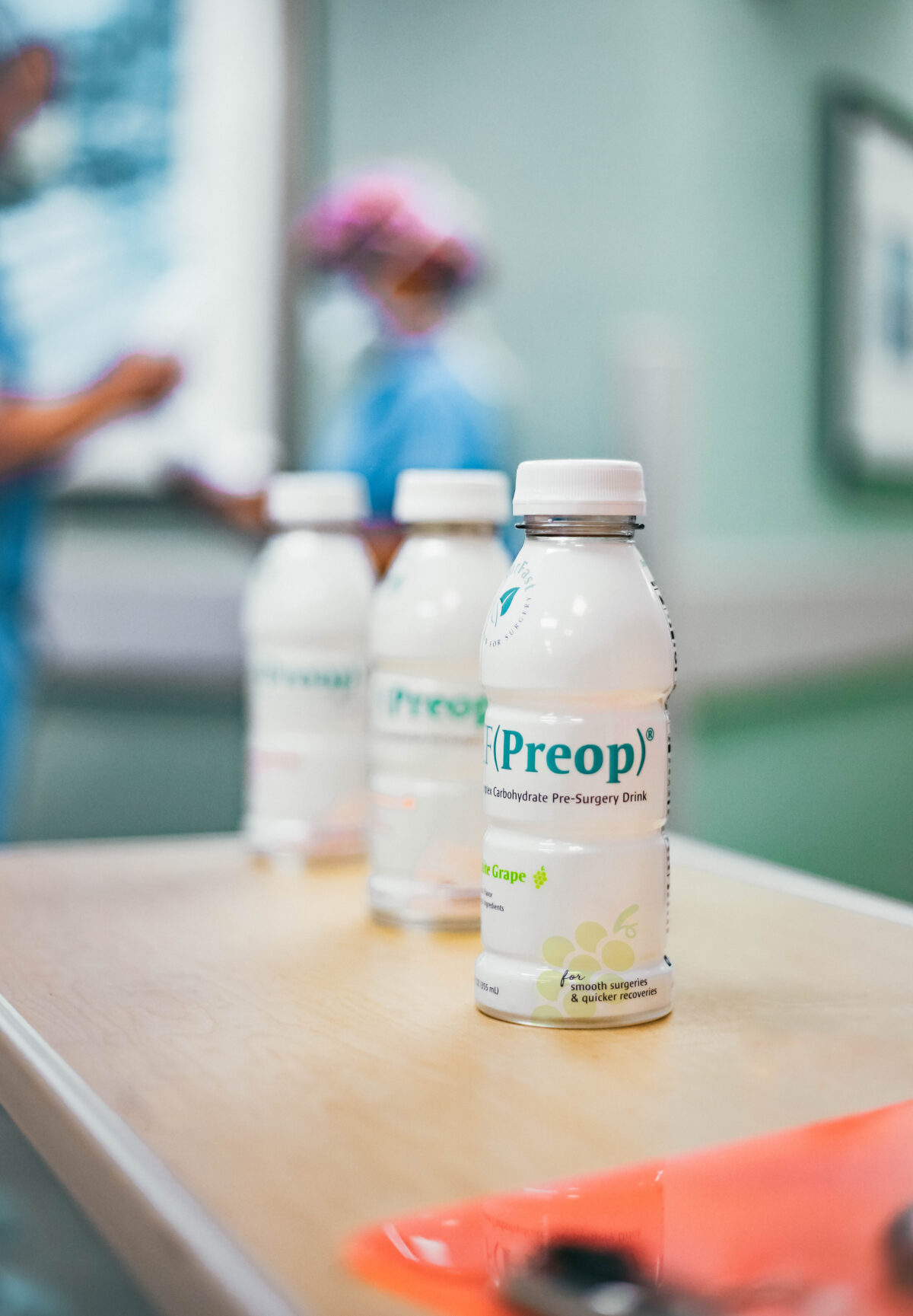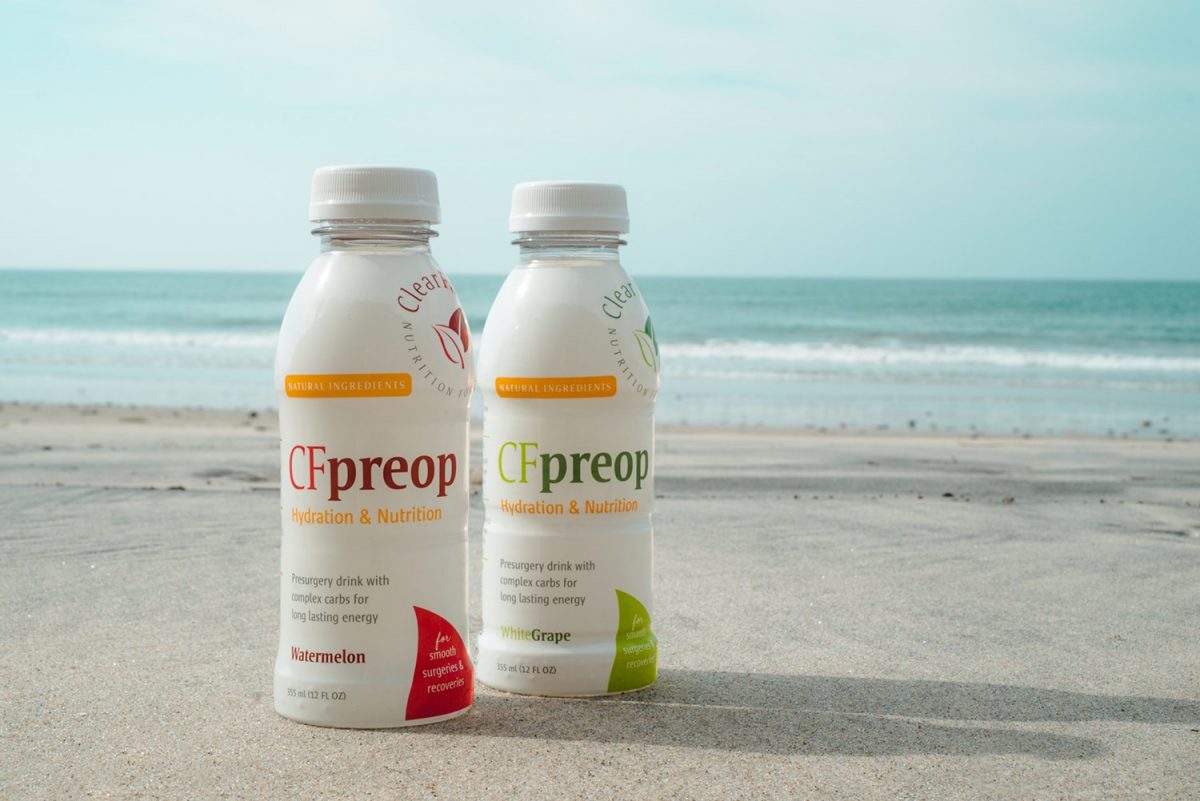Whether you’re trying to preserve muscle mass following a procedure or replenish your body with nutrients after an athletic event, adding protein to your diet is a great way to give your body what it needs to be its best. CF(Protein)® was created for both ease and enjoyment. Thirteen grams of delicious, clean plant protein is packed into an 8-oz bottle that can be enjoyed on-the-go!
What are the benefits of CF(Protein)®?
CF(Protein)® is a plant-based protein drink that provides a concentrated dose of natural electrolytes, antioxidants, and essential fats. CF(Protein)® is a great choice for anyone who is preparing for, or recovering from surgery. Plant protein is the modern way to give your body the best nutrients with the lowest impact on your digestive system.
Some benefits of drinking CF(Protein)® are:
· Promote muscle maintenance, repair, and recovery
· Strengthen the immune system
· Reduce risk of malnourishment
· Antioxidants & anti-inflammatory ingredients
· Concentrated nutrition on-the-go
· Healthy omega-3 and omega-6 fats
· Naturally derived vitamins & minerals
· Essential amino acids
· Natural fiber sources
· No artificial colors or flavors
· Shelf-stable
· Gluten-Free, Kosher, Vegan, Dairy-Free
· Convenient on-the-go protein source
How much CF(Protein)® should I drink leading up to surgery?
Each CF(Protein)® has 13 g of protein per bottle. So, depending on what else you are eating and drinking, and your specific protein needs, consuming 1 to 2 CF(Protein)® drinks per day can help ensure you are optimizing your nutrition prior to surgery. Prior to surgery, drinking 1-2 bottles per day (in addition to a well-balanced diet) for at least 2 weeks prior to surgery, will help you to feel strong and well-nourished for your operation. CF(Protein)® is not designed to be a sole source of nutrition. Therefore, consuming whole foods high in protein, is recommended before and after surgery in order to meet your protein and calorie needs.
What else is in CF(Protein)® other than protein?
In addition to the protein content in CF(Protein)®, it also contains chia seed oil and turmeric which are anti-inflammatory. These will also help to ensure you are at optimal nutrition status for your surgery as well as strengthen your immune system. The antioxidants in CF(Protein)® will help you to fight off diseases and strengthen your immunity.
How do I determine my protein needs before surgery?
There are a variety of factors that determine your specific protein needs. These include your age, activity level, chronic diseases, weight, and fitness goals. Typically, someone who is preparing for, or recovering from surgery has increased protein needs. This is to help the body ensure a speedy recovery.
To determine how much protein you need before or after surgery, take your body weight in kilograms and times it by 1.5 to 2.0.
So, if you weigh 150LB:
· Divide your weight in LB by 2.2 to get your weight in kg
o 150/2.2 = 68.2 kg
· Next, multiply your body weight by 1.5 to 2.0
o 68 times 1.5=102; 68 times 2.0=136 g
· You should consume 102-136 g per day of protein
If you have any chronic disease like COPD, Chronic Kidney disease, End Stage Renal Disease, HIV, or Cancer, please consult with your doctor or dietitian to determine your protein needs as they may be lower or higher based on your specific condition.
What if I am underweight?
If you are malnourished, it is important that you ensure adequate calories and protein leading up to your surgery. Nutritional status is crucial prior to surgery. A nutritional assessment should be completed prior to any surgery to reduce the risk for postoperative complications, increased length of stay, and risk for infection. A patient can be diagnosed with mild or severe malnutrition by the MD. A Registered Dietitian can also assess the patient for mild to severe malnutrition.
Why is it important to correct malnutrition before surgery?
It is imperative to correct malnutrition in a patient prior to their surgery. Research proves that malnutrition is a leading reason for poor outcomes postoperative. Studies show that preoperative nutritional deficiency is a strong predictor of 90 days mortality and poor overall survival. Nutrition status can be improved with recommendations from a Registered Dietitian. Common recommendations include high protein supplements such as CF(Protein)®. CF(Protein)® is a plant-based protein product with complete nutrition to help build muscle and strength for a speedy recovery. Other ways to improve nutritional status can include enteral or parenteral nutrition. For obese patients, it is often required to lose excess weight prior to surgery.
If you are preparing for an upcoming surgery, CF(Protein)® can help you meet your increased protein needs and get your body ready for surgery. Visit our website https://drinkclearfast.com/ to learn more.










